Todd Phillips’s attempt at subverting expectations of both DC Comics fans and arthouse audiences with Joker has proven beyond successful. The film, which comes as a rather surprising offering from the director so far known mostly for The Hangover Trilogy, escapes all easy classifications. Inspired by the figure of Batman’s key nemesis, yet by no means servile to the famous superhero narrative, it appears as a fascinating psychological study of a vulnerable mind in the face of societal callousness. A picture of immense aesthetic appeal and expressive power, Joker deserves all accolades on the merit of reinterpreting the iconic villain according to a non-dichotomous understanding of existence. Challenging simplistic thinking patterns, Phillips presents a dystopian reality which provides no comfort of rigid distinctions or clear-cut conclusions. His take on the idolised character results in a deeply disturbing and sad but all the more spellbinding film about the implications of being human in a dehumanised world.
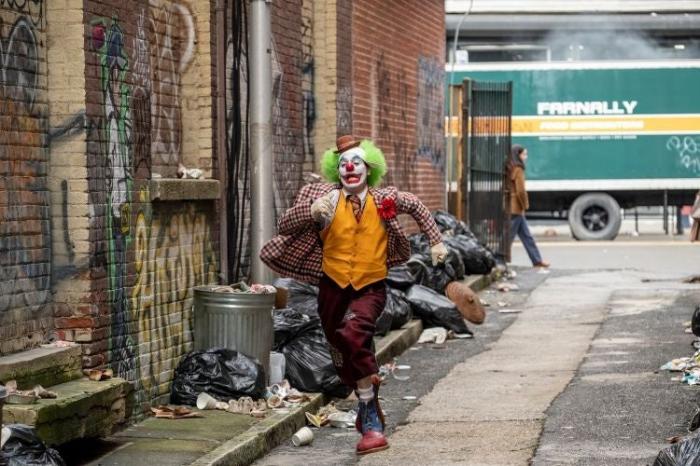
Crucial to the picture’s impact is, naturally, Joaquin Phoenix’s extraordinary performance employing a great range of physical means, from strident laughter, through a variety of grimaces symptomatic of mental illness, to elements of body language associated with camp. His protagonist, named Arthur Fleck, suffers from pseudobulbar affect, a neurological disorder typically occurring in consequence of a damage to the prefrontal cortex and manifesting itself in uncontrollable displays of emotions, often contrary to how the person truly feels. In Arthur’s case, it comes across as a hysterical guffaw, getting him in trouble with the so-called neuronormative society. With his seemingly hilarious disposition, Arthur works as a clown for hire and dreams of one day becoming a comedian, like his hero Murray Franklin, a TV show host played by Robert De Niro. Directly alluding to Scorsese’s classics, Phillips blends meta-textual references into figments of Arthur’s imagination, while contrasting them with the grim reality of his life. It is that very discrepancy between Joker’s true miserable self and his superficially giddy exterior — lying at the foundation of the comic character and so masterfully explored by Phoenix — that appears central to the director’s approach, clearly pointing to the intrinsic duplicity of all things human.
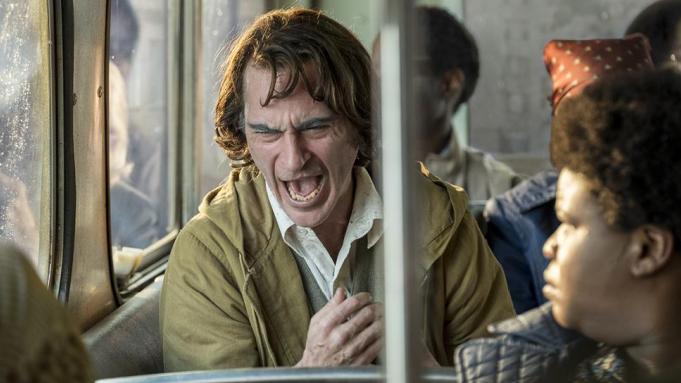
Neither good or evil, but – most simply – severely damaged in body and soul, Arthur experiences great confusion and desolation stemming from the widespread misunderstanding of his condition and compounded by limitations in his access to medical help. Frustration leads to an increased aggression which, in turn, gets self-perpetuated by the sense of validation that it provides. Consequently, Arthur begins to spin out of control in a superb display of what Antonin Artaud would have called ciné de la cruauté, a total form of filmic art which assaults the audience in the most spectacular and meaningful of manners.
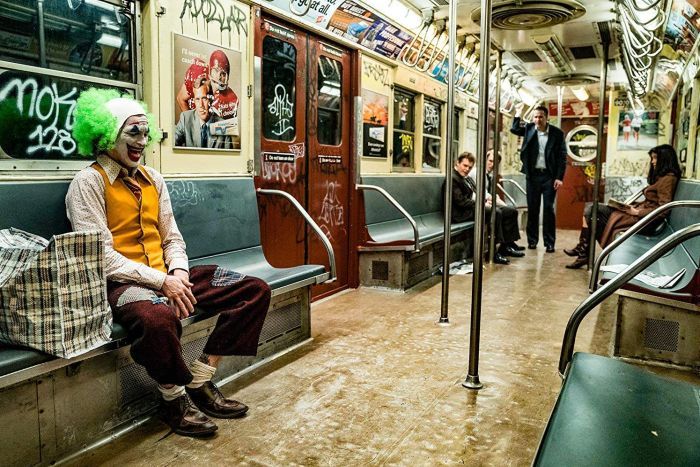
Brilliantly photographed by Lawrence Sher, the film depicts Joker’s transformation in an array of breathtaking sequences. Making excellent use of unhealthily green hues harvested in the New York urban sprawl, Phillips and his DP create a visually coherent yet emotionally shattered universe. A combination of natural and vintage light sources, hand-held camera, extensive close-ups and slow-motion results in a surge of visual poetry culminating in three mesmerising dance scenes. Stylistically discrete and motivated by different psychological triggers, not only do they punctuate the narrative by clearly marking consecutive stages of Joker’s progressive delirium, but – due to their tremendous intensity – pretty much sum up the film’s affective potential.
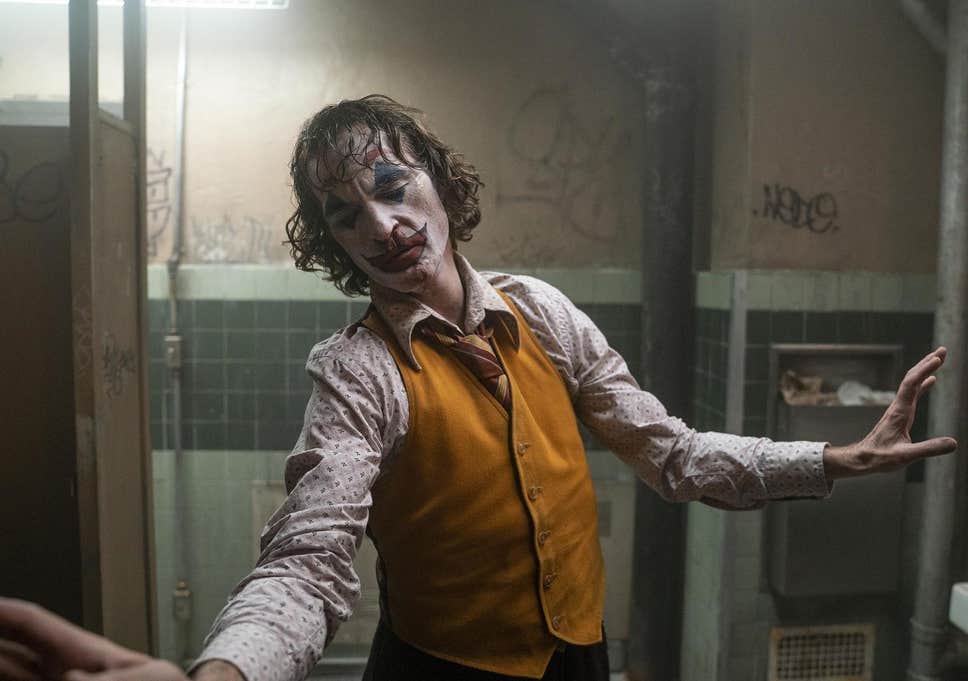
At once softly lyrical and frantically bold, Joker is one of the most cinematically arresting representations of a derailed mind (and its complex circumstances) ever made. The original cello score created by the Icelandic composer Hildur Guðnadóttir effectively enhances the anxiety and rage fuelling the protagonist’s mania. Founded on the ethereal matter of feelings and the auto-referential perspective of an afflicted ego, Joker’s universe is by necessity nebulous and fluid, and the score’s dynamic subtly reflects its constitution. The inclusion of pre-existent tracks, such as Rock and Roll Part II by the condemned paedophile Garry Glitter, accompanying the formidable staircase scene, adds the next level of complexity to the film’s equivocal spirit. As much as most critics refuse to admit, it is a blatantly intentional choice, contributing to the director’s diagnosis of the hazy reality we call our own.
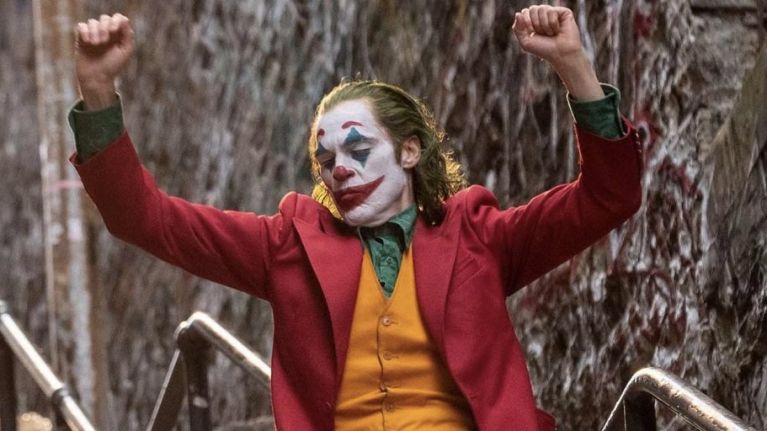
Joker‘s climax, consisting of the splendidly orchestrated riot sequence, takes the principle of that ambivalence to its ultimate consequences. Wearing clown masks, anonymous hordes wreak havoc on the city of Gotham, following in the footsteps of Arthur who, mistreated and humiliated by those masses’ most despicable elements — sensitive to their own harm but utterly ruthless when it comes to the pain of others — loses the last shadow of hope and ends up setting out on a murderous spree. The crowds, let down by the corrupted government, frustrated by their wages and living in substandard conditions with rubbish piling up on the streets, appear to have an abundance of reasons to rebel, and feel justified to go further, looting and killing on a whim. They target whatever and whoever might seem a fitting object of their wrath — from random police vehicles to the aspiring mayor Thomas Wayne and his wife. Shot on their way out of a theatre, the Waynes die before the very eyes of their son Bruce, whose trauma will at some point turn him into Batman. A flashback of that event in the final scene of Arthur’s interview in the psychiatric ward suggests that it heavily weighs on his consciousness, as he bursts into an excruciating laughter, having gained full awareness of his role in the whole pandemonium.
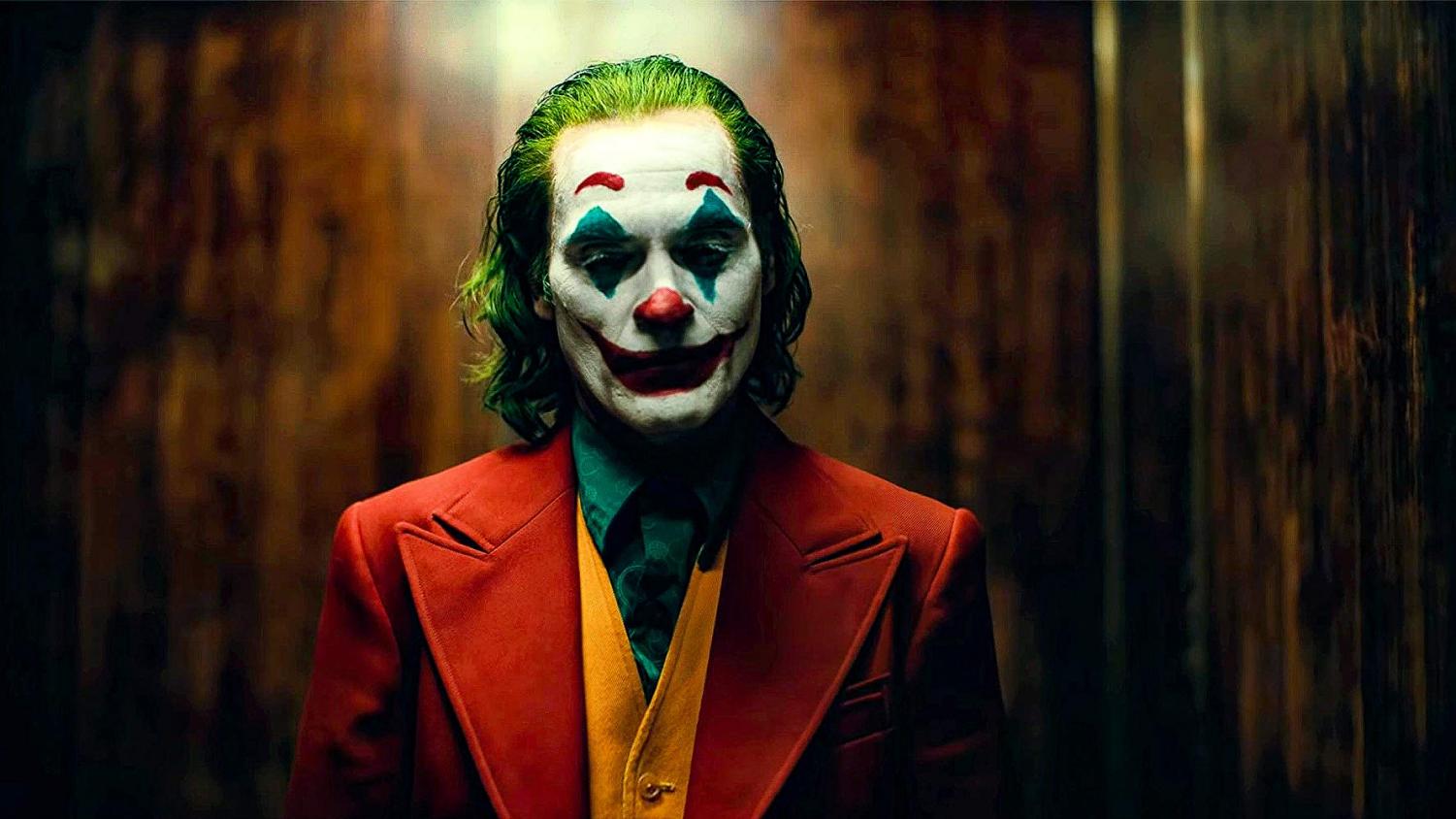
Joker is like a mirror confronting its beholders with their own, possibly long-standing convictions. Do we feel bad for Arthur going through his turmoil? If we don’t and are quick to close the case by stamping him as a psychopathic murderer, what does it say about our sense of compassion? If we do, where do we draw a line? And why? In either case, should we feel guilty? Joker’s greatest strength lies in the fact that it offers no easy answers and no concrete stance, yet it raises a great number of questions. It’s a film made to unsettle our minds, just as Arthur’s ailment upsets his, and to spur criticism towards any embedded ideology, currently deemed virtuous or not.
©Anna Bajor, Tracks & Frames, 2019
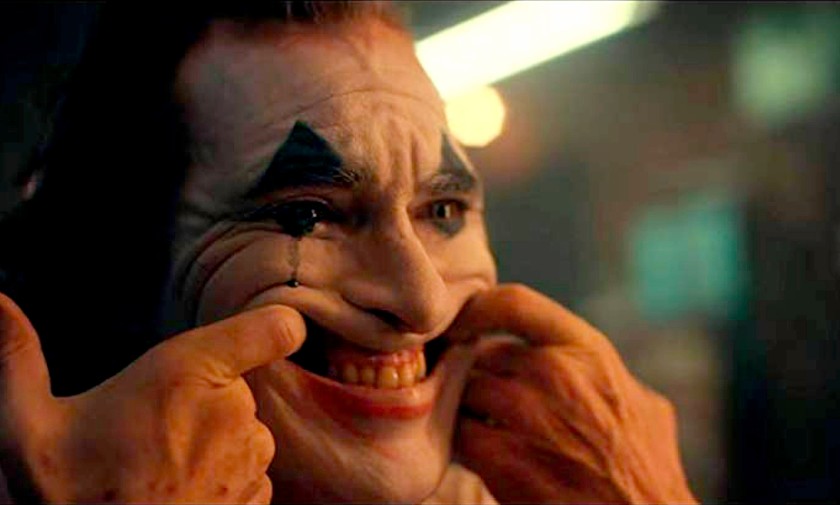








 English
English polski
polski português
português